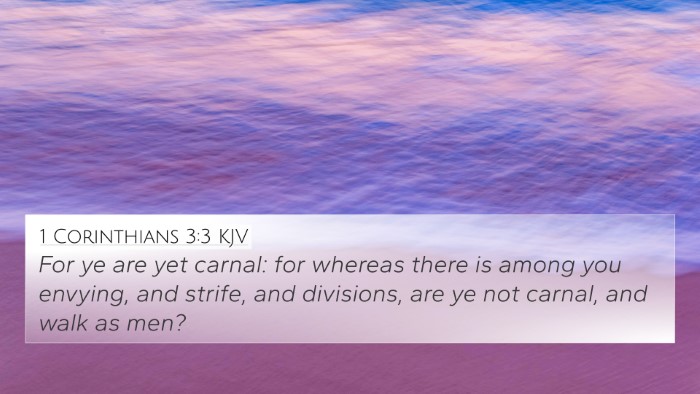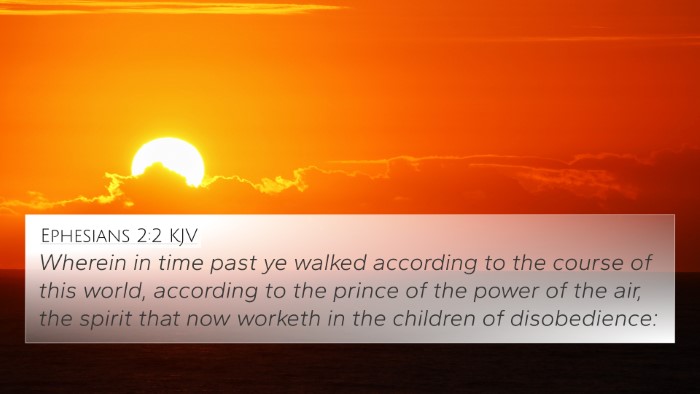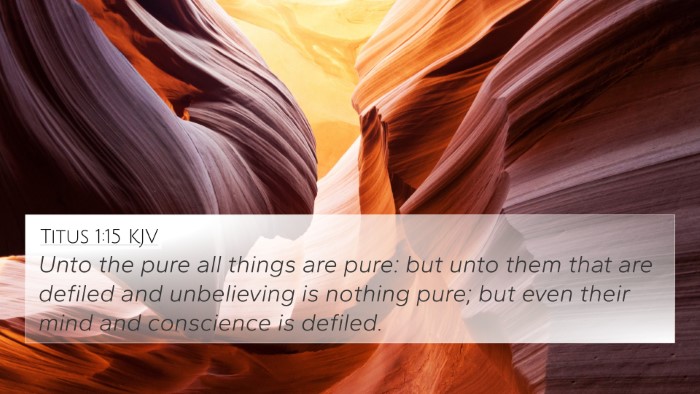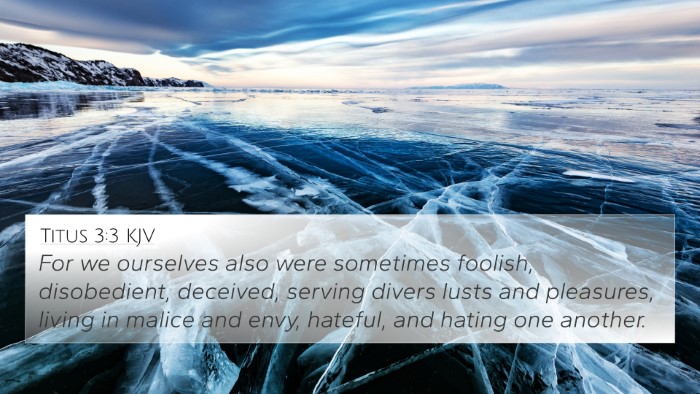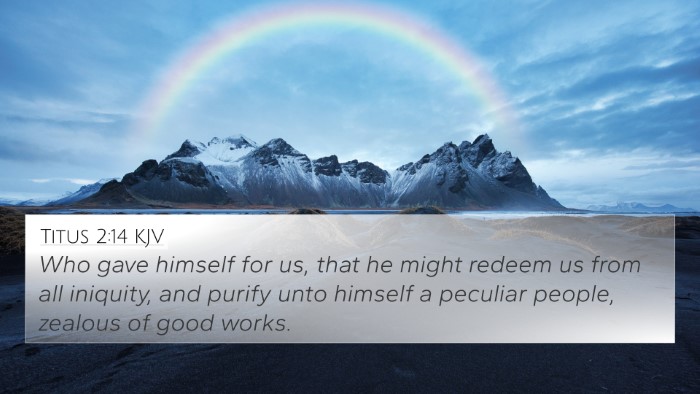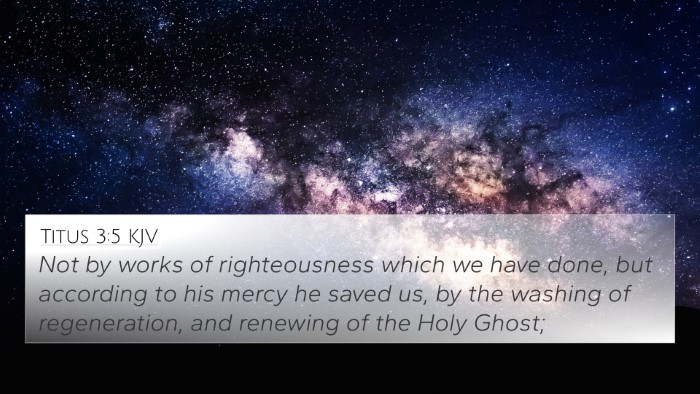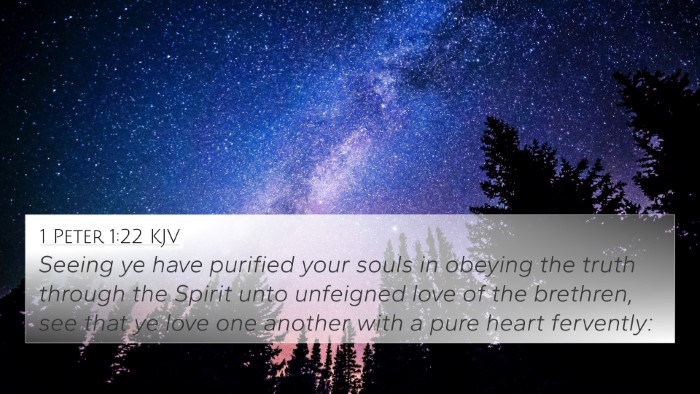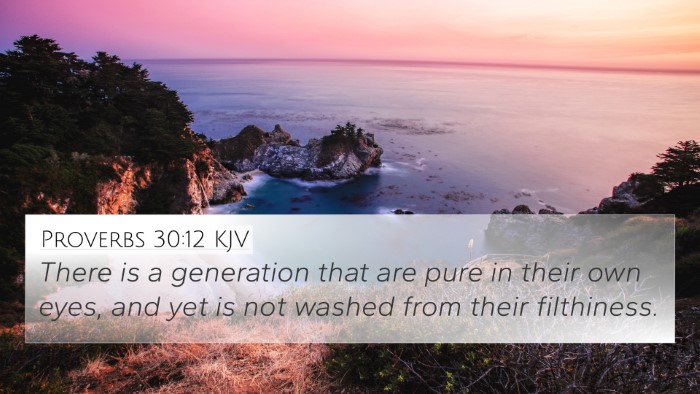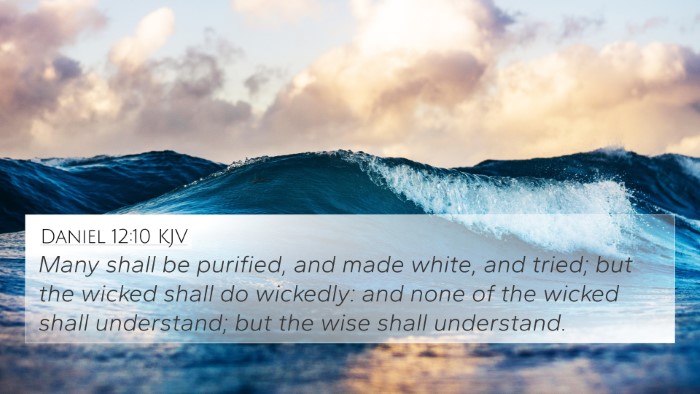Understanding Proverbs 21:8
Verse: Proverbs 21:8 - "The way of man is froward and strange: but as for the pure, his work is right."
Summary of Meaning
This verse contrasts the nature of the unscrupulous or wicked man with that of the pure-hearted individual. It highlights the idea that while the actions of the deceitful are perverse and difficult to understand, those who are righteous or pure in their intentions will have their works aligned with what is right and just.
Insights from Matthew Henry
Matthew Henry notes that the "way of man is froward and strange," indicating that human nature is often characterized by self-deception and moral ambiguity. He suggests that this inconsistency in character leads to behavior that is perplexing and difficult for others to navigate. The contrast comes with the description of the pure, whose actions are straightforward and aligned with divine standards.
Insights from Albert Barnes
Albert Barnes emphasizes the distinction between the froward man and the pure man. He interprets "froward" as a lack of integrity, where one's path is filled with deceit. Meanwhile, he asserts that the pure man's choices are guided by righteousness, resulting in actions that are right in the sight of God. Barnes remarks on the moral clarity that accompanies purity, asserting that it brings forth good works.
Insights from Adam Clarke
Adam Clarke elaborates by indicating that a person's way reflects their heart. He points out that the word "strange" implies a deviation from the norm. Clarke interprets the "pure" as one who is sincere and upright, contrasting sharply with those who are deceitful. He encourages readers to pursue purity to ensure that their actions are beneficial and morally sound.
Cross-References for Proverbs 21:8
- Proverbs 10:9: "He that walketh uprightly walketh surely: but he that perverteth his ways shall be known."
- Proverbs 4:23: "Keep thy heart with all diligence; for out of it are the issues of life."
- Psalm 34:15: "The eyes of the Lord are upon the righteous, and his ears are open unto their cry."
- James 3:17: "But the wisdom that is from above is first pure, then peaceable, gentle, and easy to be entreated, full of mercy and good fruits, without partiality, and without hypocrisy."
- Jeremiah 17:9: "The heart is deceitful above all things, and desperately wicked: who can know it?"
- 1 John 3:3: "And every man that hath this hope in him purifieth himself, even as he is pure."
- Matthew 5:8: "Blessed are the pure in heart: for they shall see God."
- Proverbs 12:15: "The way of a fool is right in his own eyes: but he that hearkeneth unto counsel is wise."
- Romans 12:2: "And be not conformed to this world: but be ye transformed by the renewing of your mind, that ye may prove what is that good, and acceptable, and perfect, will of God."
- Philippians 4:8: "Finally, brethren, whatsoever things are true, whatsoever things are honest, whatsoever things are just, whatsoever things are pure, whatsoever things are lovely, whatsoever things are of good report; if there be any virtue, and if there be any praise, think on these things."
Connections Between Bible Verses
When analyzing Proverbs 21:8, we notice thematic connections across various biblical texts that emphasize righteousness, moral integrity, and the nature of human behavior. This inter-Biblical dialogue reveals deep-seated truths present throughout the Scriptures.
Linking Bible Scriptures
The link between Proverbs 21:8 and passages like James 3:17 showcases how divine wisdom leads to purity and straightforwardness in one's actions. Similarly, cross-referencing Jeremiah 17:9 regarding the deceitfulness of the heart provides a backdrop to the necessity of striving for purity.
Thematic Bible Verse Connections
Proverbs 21:8 is rich in themes that appear throughout both the Old and New Testaments. The call to purity resonates in the Beatitudes, as seen in Matthew 5:8, emphasizing that purity is rewarded by spiritual insight. Comparatively, the admonition found in Proverbs 4:23 to guard one’s heart ties back to the verses’ central theme of moral vigilance.
Tools for Bible Cross-Referencing
Utilizing a Bible concordance or a Bible cross-reference guide can greatly enhance your study of Proverbs 21:8. These tools aid in identifying connections between Old and New Testament writings, facilitating a deeper understanding of biblical themes.
How to Use Bible Cross-References
To effectively cross-reference biblical passages, one might start by choosing a central verse, such as Proverbs 21:8, and tracing its themes or concepts through related scriptures using a cross-reference Bible study method. This not only enriches comprehension but also encourages reflective meditation on the interconnectedness of the Scriptures.
Conclusion
In contemplating Proverbs 21:8, it becomes clear that the Bible addresses the purity of heart and integrity of actions as central tenets for a righteous life. Through insightful commentary and comprehensive cross-referencing, believers are encouraged to engage with these principles deeply, fostering a life that reflects the divine will.





